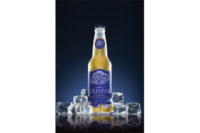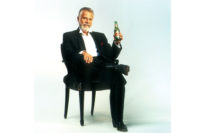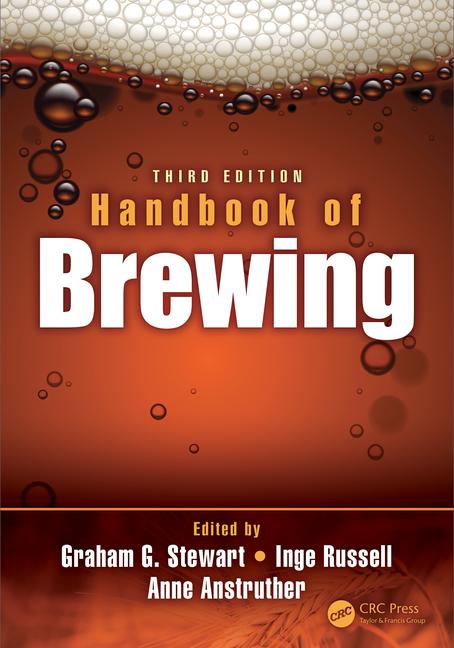Crafting Generations of Beer
By SARAH THEODORE
It’s probably safe to say that when the
Leinenkugel brothers get together for a beer, it’s a little different
than most sibling gatherings. For starters, their family name looks back at
them from every bottle, and carries with it almost 140 years of brewing
history, as well as an image that has become synonymous with the Midwest
region in which their brewery was founded. It might sound like a lot of
pressure, but Jake, Dick and John Leinenkugel say they look at it as
“incentive,” and while their approach to sales and distribution
is all business, they have infused their products with a sense of
relaxation and an irreverent sense of humor that keeps their brand as
relevant to today’s consumers as it was in their great, great
grandfather’s time.
The Jacob Leinenkugel Brewing Co. traces its
beginnings in Chippewa Falls, Wis., to 1867, when the area was a leading
lumbering region in need of a beer for its thirsty laborers. Today the
Northwoods is more of a vacation destination, and the company tries to
incorporate both ideas into the brand.
“They were a huge risk-taking lot in those
days,” says company President Jake Leinenkugel. “They
established a neat little business with our last name on it … I want
to make sure it not only maintains the history and prestige that our great,
great grandfather and his partner started, but also make it
better.”
The careful balance of the traditional and the
contemporary is one of Leinenkugel Brewing’s
strongest characteristics. The company is a leading craft brewer, with a
portfolio of year-round and seasonal offerings. It became part of Miller
Brewing Co. in 1988, but has remained family run and maintained its
headquarters and the majority of its production in Chippewa Falls, which
proved even more beneficial to the brand than it anticipated.
“Chippewa Falls and the meaning it has with our
customers and consumers is much more powerful than we probably realized 10
years ago,” Jake says. “It really shapes a lot of our brand
positioning and who we are as brewers.”
To that end, the company has based much of its
messaging on being “The Flavor of the Northwoods,” and many of
its offices are housed in the “Leinie Lodge,” a large welcoming
center that is a tourist destination in itself, hosting 42,000 visitors a
year and celebrating anything related to hunting, fishing, camping —
and, of course, beer.
A strong partnership
While Miller Brewing took a hands-off approach to
running the Leinenkugel business, it has offered valuable consumer insight
that has helped in both marketing and product development, says Dick
Leinenkugel, vice president of sales and marketing.
“We’re very blessed by being part of
Miller Brewing Co. where we have access to the latest research and some
terrific marketing minds,” he says. “Having access to that has
certainly made the three of us better marketers and better brewers.”
“They have made a commitment to make sure we
have the resources, we have the up-to-date knowledge of what’s
happening in the beer industry today, and they are more than willing to
provide us with those resources,” Jake adds. “They have helped
us develop very good brand positioning. We knew the guts of who we were,
but they helped bring the discipline to establish tighter brand positioning
and helped us develop tighter brand strategies.”
The Leinenkugel year-round lineup begins with Original
Lager, which is brewed from a traditional family recipe. Leinie’s
Light is a similar style, with fewer calories, and Red Lager is a Vienna
style red lager. Creamy Dark is a dark lager reminiscent of a stout, but
with a less bitter flavor. Wheat beers round out the full-year portfolio,
with the company’s top-seller, Honey Weiss, and new Sunset Wheat.
With the addition of several seasonal products, the portfolio offers a
little something for everyone, which suits today’s market well, Dick
says.
“Today’s beer consumer isn’t just
drinking the same beer; he may not even drink beer all the time,” he
says. “It’s really about the occasion, and I think one of the
advantages we have at Leinenkugel is we have this breadth in our portfolio
where we have a beer for every occasion.”
The family brewing tradition is in German lagers, but
a willingness to experiment with different “craft” styles of
beer was apparent, even before craft beer was a legitimate beverage
category. “Our great grandfather was making porters, and was making
pale malt extract products back in the early 1900s, before
Prohibition,” Jake says. “After World War II, we already had a
brand [in a seasonal bock beer], we just didn’t know it was that
special or crafty.
“The new consumer start for us was a select
group of consumers who said, ‘This beer is special.’ It only
came out once a year for a couple of months, and they were willing to pay,
at that time, a quarter a case more for it, which was considerable. It
started us thinking that maybe this was something we needed to explore with
other styles of beer.”
The company rotates a number of seasonal brands
throughout the year, including Big Butt Dopplebock, a dark bock beer
allegedly named for the head-butting goats on the label, from January to
March; Berry Weiss from April to September; Oktoberfest, a traditional
Märzen-style beer, in September and October; and Apple Spice in
November and December.
Leinenkugel’s leading brand, Honey Weiss,
started out as a seasonal product in 1995 and was so successful it quickly
became a year-round offering. On-premise the product was served with a
lemon, making it one of the first Leinenkugel products to embrace
“occasion-based” selling opportunities. It also was one of the
first to bring a female audience into the fold.
According to Jake, that wasn’t the reason the
company developed the product, but it quickly saw an opportunity in Honey
Weiss’s appeal.
“When you look at Honey Weiss and what that
brand represented at the time, it was a summer seasonal beer that we knew
was going to be a very good, clean, drinkable, Kristal style of German
lager, with a very prominent wheat base — different than anything in
the industry at that time. The garnish of lemon trademarked that
style,” he says.
“We found that a lot of women, all of sudden,
were seen with a pint glass with a lemon on it, and I remember asking so
many of them ‘why?’ No. 1 was they liked the taste of the beer
and they thought it was a little crisper, lighter and sweeter. The second
thing was that the garnish was something that attracted them to the beer
for the first time.”
With that in mind, the company developed Berry Weiss
the following year, blending a wheat beer base with loganberries,
elderberries and blackberries, and it became a seasonal hit. “We
really were one of the first brewers that we’re aware of in the
United States that did a product like that from a malt base,” Jake
says. “Berry Weiss compounded and sped up the process of attracting
women that we never had in the franchise before.”
The move was ahead of its time, as any look at
today’s beer category will indicate. A number of beer companies, such
as Anheuser-Busch with its new Peels product, are turning their attention
to female consumers these days, and Jake says, “I give all of us a
little bit of credit, either by plan or by mistake, for entering that early
and taking a risk.”
New tastes for new consumers
But the products didn’t just attract women; the
new flavor profiles have proved equally appealing to the new generation of
male consumers. In fact, Leinenkugel says a “mix it up”
campaign was based on an idea that came from men mixing Honey Weiss and
Berry Weiss to create a new, customized flavor.
“There is that new-entry beer drinker who is
finding new ways to enjoy their beer, either by mixing them up or trying
some of our new styles,” Jake says.
With a nod to the Belgian beer style, the company this
spring rolled out Sunset Wheat, which has citrus characteristics as well as
a bit of coriander spice, and is served with an orange slice on-premise.
But one of its biggest flavor gambles was Apple Spice,
which the company introduced as a seasonal last winter and readily admits
is a love-it-or-hate-it proposition — fortunately a lot of people
loved it. An apple product was first considered a decade ago, during the
development of Berry Weiss, but stayed on the back burner until last year.
The product featured an apple flavor as well as cinnamon spice, and could
be served hot or cold.
“You look at ‘Does it make sense to the
consumer group and to our brand positioning?’ and with the Northwoods
and our location in Wisconsin, apple and apple orchards are a big
thing,” Jake says. “We floated it out there and we did some
sampling … and we were completely blown away. Dick made a very gutsy
move and said ‘I think we’re going to sell twice as much of
this; let’s brew twice as much.’ And I didn’t say
‘You’re nuts,’ but I was thinking it for a minute. The
outcome was phenomenal, a great success story.”
The Leinenkugels say they are less concerned with
brewing specific types of products than they are with creating fun,
drinkable styles of beer.
“It’s all about making beer fun,”
says Sales Representative John Leinenkugel. “That’s a key point
here at Leinenkugel’s. We want to make beer fun, and we want to make
it interesting.
“You look at these young consumers …
they’re not looking for a standard lager or just an ale beer. They
want sweeter, more interesting flavors, and we at Leinenkugel, and the beer
industry in general, have to start making our products more fun, more
innovative, more interesting to these young, legal drinking age
consumers.”
“There is a fragmentation that is happening in
the beer business, and that is really all about customizing your beer to
make it your own,” Dick adds. “The garnishing of Honey Weiss
with a lemon wedge, the mixing of Honey Weiss and Berry Weiss together to
create your own beer, the orange slice serving suggestion with Sunset Wheat
make them distinctive, differentiated and fun.”
The lighthearted attitude carries over into the brand
marketing, which often reflects the vacation atmosphere of the Northwoods,
and in many cases reflects a tongue-in-cheek sense of humor. The company,
in the past, has created bicycles out of kegs for promotional purposes, and
this summer, will promote the introduction of Sunset Wheat with each of the
brothers sitting in 10-foot “Leinie Loungers” — think
Lily Tomlin — in retail locations.
The family aspect of the business is an important
marketing element, and the three brothers are featured in radio
advertisements as well.
“We’ve gotten much better at defining who
we are from a brand essence and brand positioning,” Jake says.
“Where it all came together was putting all three brothers together
and having some very strong message points about the product — why
our product is different, why it is drinkable. At the same time, we talk
about experiences of the Northwoods — the lakes, the streams, all the
different things you can do while enjoying a Leinenkugel’s beer with
family and friends. I think the message points we have are some of the
strongest in the industry.”
Beyond the Midwest
The resurgence of craft beers during the past several
years has brought a number of new distribution opportunities to
Leinenkugel. The brand is available in 28 states altogether, and sources
the majority of its business in 10 Midwestern states. But Miller
distributors in regions outside the Midwest have expressed interest in the
brand, Jake says.
“It’s sort of an exciting time for us, but
we must be deliberate and make sure we’re not rushing out to all of
these markets,” he says. Some markets that have a large Midwest
transplant or seasonal population make sense for the company, and some
markets offer other similarities that work with the brand.
“We’re looking at all possibilities, but
it has to be relevant to our brand and our positioning,” Jake says.
“I don’t want us to go into a market where we don’t have
a chance of sustaining growth for the long term.”
But craft beer itself definitely has long-term
possibilities, he says, pointing out that it’s not just newly legal
consumers who are attracted to craft beer, but baby boomers as well.
“What I’m noticing is that segment likes
and prefers beer, but differently … that’s the group that is
willing to trade up,” Jake says. ”I call it drinking a little
less, but drinking better. I think that group is going to be there for, not
just a few years, but decades.”
And John adds that he believes the combination of
family and history will keep Leinenkugel Brewing in a great place to
capture that audience.
“Authenticity is
very important,” he says. “Leinenkugel is very authentic in the
name, the history and everything we do. We have a real story to tell. Our
consumers are interested in it; they light up when you tell them the
history.” BI




